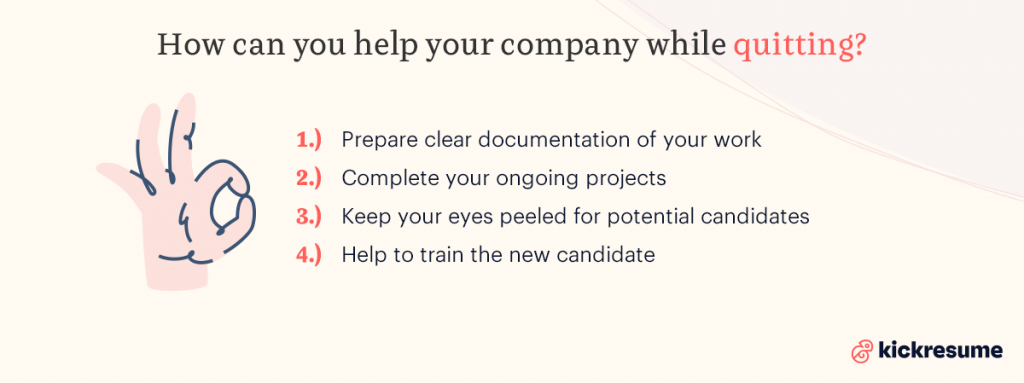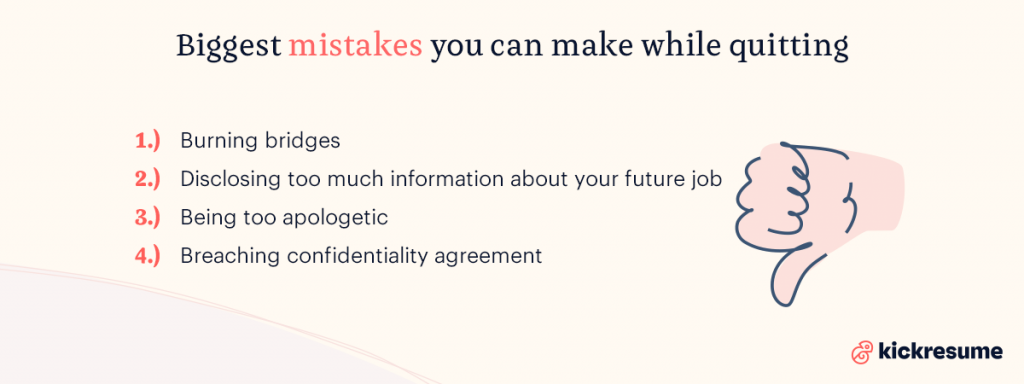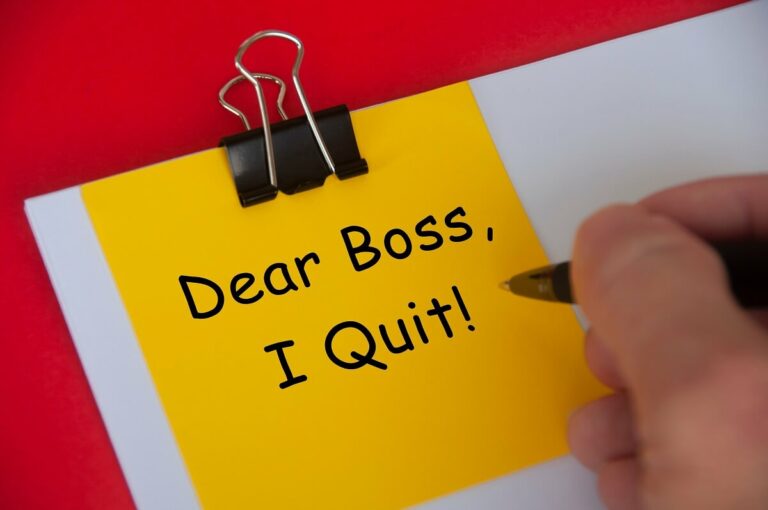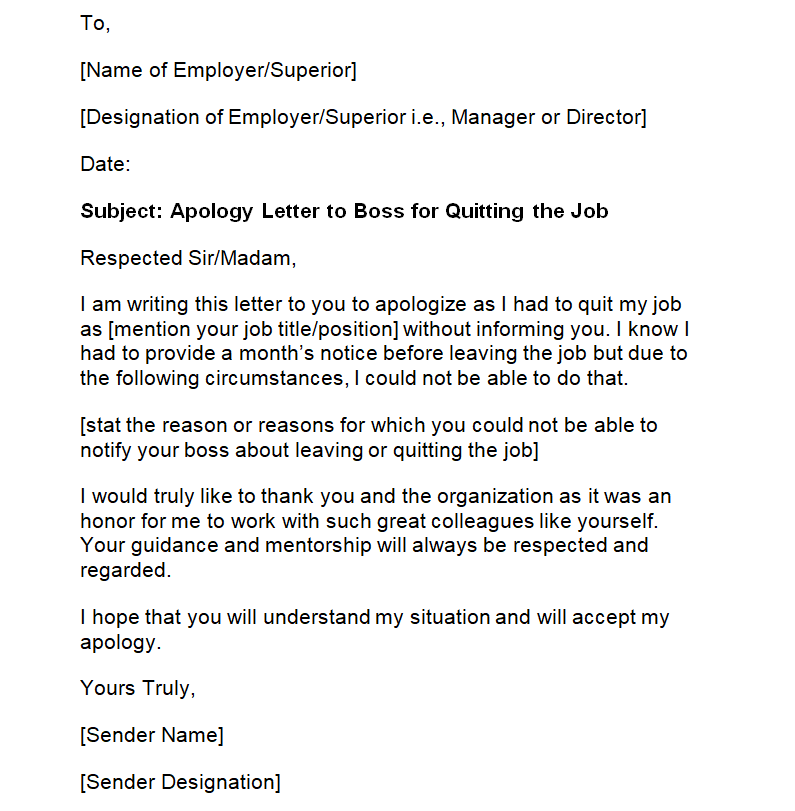How To Tell Your Boss That You Quit

The soft glow of the morning sun streamed through Sarah's window, illuminating the dust motes dancing in the air. She took a deep breath, the scent of freshly brewed coffee doing little to calm the butterflies fluttering in her stomach. Today was the day. The day she would embark on a new chapter, a chapter that began with a conversation she had been meticulously planning for weeks: telling her boss she was moving on.
Navigating the professional landscape often involves challenging conversations, and informing your supervisor of your resignation is undoubtedly one of them. It’s a pivotal moment requiring careful consideration, respect, and strategic communication to ensure a smooth transition and maintain positive professional relationships.
Laying the Groundwork
Before you even schedule that meeting, take a moment for introspection. Be absolutely sure of your decision. Analyze your reasons for leaving and ensure they align with your long-term career goals.
Once your decision is solidified, prepare the necessary documentation. Have your resignation letter drafted and ready to present. A well-written resignation letter typically includes your last day of employment, a brief expression of gratitude for the opportunity, and an offer to assist with the transition.
Timing is Everything
Choosing the right time to deliver the news is crucial. Avoid doing so during particularly stressful periods for your team or when your manager is already overwhelmed. Opt for a time when you can have their undivided attention, ideally in a private setting.
Many professionals find that scheduling the conversation mid-week allows for adequate time to discuss next steps before the weekend arrives. Some research indicates Tuesdays and Wednesdays are the most productive days for communication in the workplace. This allows your manager adequate time to process the information.
The Conversation: Grace and Professionalism
When you finally sit down with your manager, remember to be direct and respectful. Start by expressing your gratitude for the opportunities and experiences you've gained during your time at the company.
Then, clearly and concisely state your intention to resign, providing your last day of employment. It is very important to be respectful. Avoid negativity or dwelling on workplace grievances.
According to SHRM (the Society for Human Resource Management), maintaining a positive and professional demeanor during your departure can significantly impact your future career prospects and professional network.
Be Prepared to Answer Questions
Your manager will likely have questions, so be prepared to address them honestly and thoughtfully. They might inquire about your reasons for leaving, your future plans, or how they can support a smooth transition.
Avoid burning bridges by speaking ill of the company or colleagues. Maintain professionalism, even if your departure stems from less-than-ideal circumstances.
Offering assistance with training your replacement or documenting your processes can demonstrate your commitment to ensuring a seamless handover. This final act of goodwill can leave a lasting positive impression.
The Importance of the Resignation Letter
Your resignation letter serves as a formal record of your departure and provides clarity for both you and your employer. It should be clear, concise, and professional. There should also be a brief expression of gratitude.
While you may have already discussed your reasons for leaving with your manager, the letter doesn't need to reiterate every detail. Focus on expressing your appreciation and offering support during the transition.
Remember to keep a copy of the letter for your own records.
Life After Resignation
After informing your manager and submitting your resignation letter, focus on wrapping up your responsibilities and ensuring a smooth handover. Collaborate with your team to document your work and train your replacement, if applicable.
Maintain a positive attitude and continue to perform your duties diligently until your last day. Leaving on a high note will preserve your reputation and ensure that you are remembered fondly.
As Sarah walked out of her boss's office, a sense of calm washed over her. She had navigated the conversation with grace and professionalism, leaving a positive impression in her wake. The future felt bright, full of possibilities, and she was ready to embrace the next chapter, armed with the knowledge that she had handled a challenging situation with integrity and respect. The end of an era can always be bittersweet.


:max_bytes(150000):strip_icc()/how-to-tell-your-boss-you-re-quitting-your-job-2063035_FINAL-5b88037cc9e77c002cc6f46c.png)















